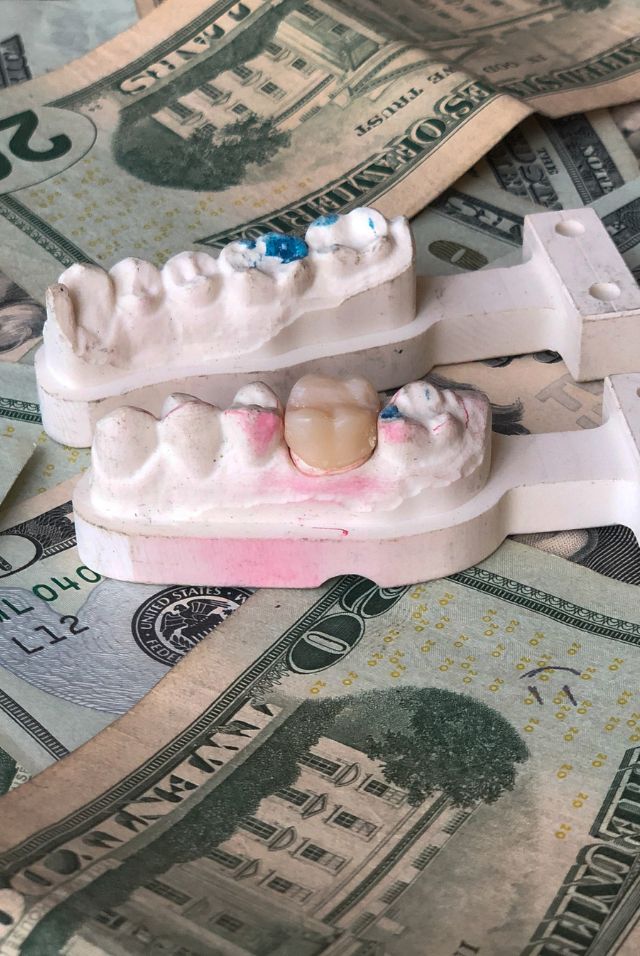Partial Dentures vs. Implants
Many factors you need to consider when comparing partial dentures vs. implants. If you have few healthy teeth, partial dentures can be a cheaper, quicker alternative to implants. If you’re going to replace missing one or two teeth, your dentist may recommend an implant.
A dental implant placement typically requires local anesthesia and may involve incisions in the gum to access the bone.
In case you still have some healthy teeth, partial dentures may be recommended as a less expensive and faster alternative to implants.
This article will help you navigate which is best for you; partial dentures vs. implants.
Implants
It is a metal post replacing a missing tooth’s root. It is inserted into the jawbone, where the metal post fuses with the surrounding bone to create a strong and stable base for replacement teeth (crowns).
Depending on which teeth are missing, implants are typically placed in a person’s lower or upper jaw.
The surgery involves creating a hole in the gum and drilling into the bone to insert the implant, which is considered invasive. The area of your mouth receiving an implant you would like your implant is numb during this procedure. (1)
After successfully placing implants in one or more areas of your jaw, they are anchored with screws that hold them in place until they have healed completely. Implants have the potential to be permanent with proper oral hygiene and care.
Partial Dentures
Partial dentures are removable structures that replace missing teeth and may clip onto existing teeth or have a metal framework that rests on the gums. Partial dentures are removable, not permanent. (2)
Partial dentures are different in designs and materials that provide a range of comfort levels for patients during daily wear. Partial dentures can be used on one side of your mouth or both.
A partial denture requires no surgery, and you will walk out of your dentist’s office on the same day of the appointment.
Partial Dentures vs. Implants

1. Cost
In case you have few healthy teeth, partial dentures can be a cheaper, quicker alternative to dental implants. Dentures are less expensive than implants, which require crowns or bridges (made up of two or more crowns).
Partial dentures can be cheaper than implants, but they’re not always. A partial set of dentures costs $1,000 and $1,500 (or more), while an implant-supported bridge may cost upwards of $6,000.
Implant treatment price depends on the implant used, where you live, and if your insurance covers it.
2. Durability
Implants can last many years, potentially a lifetime, with proper care and are a fixed solution. They can be used to support dental bridges.
Partial dentures are removable and can offer comfort, but comfort level can vary between individuals. Implants may require bone grafting if there is insufficient bone, but this does not directly relate to the comfort of implants versus dentures.
3. Lifelike structure
Partial dentures look natural because the false teeth mimic the appearance of your own teeth using real metal or porcelain materials like crowns or bridges. This is why Partial dentures can look natural and lifelike, but implants offer a more natural feel and function because they are anchored directly into the jawbone.
However, they still provide some advantages in certain situations, such as when wearers experience difficulty chewing food due to jaw pain caused by nerve damage caused by arthritis (such as temporomandibular disorders).
Should I Get an Implant or Partial Denture?
Partial dentures are cheaper, but implants are more stable.
- Implants can support crowns, so you don’t need to worry about a toothbrush’s partial denture falling out of place or being knocked out of position.
- Implants have a high success rate and are durable, but this does not imply that partial dentures break easily under stress. Each has its own advantages and suitability, depending on the situation.
- With an implant-supported crown, you’ll always have something holding up your front teeth; if one breaks off at some point (more likely than not!), chances are good that another one will be nearby, ready for placement!
If you choose a partial set of dentures instead of an implant-supported bridge or implants in general (for whatever reason), here are some things that could make it easier:
- You don’t have many teeth left after all those root canals! This means there won’t be much room for error when fitting them into place—and if something goes wrong during installation or removal later down the road, you can get another set!
- They look kind of like natural teeth, anyway!
Conclusion
We’re sure you have more questions about partial dentures and implants. With so many options, knowing what’s right for you can take some time. We recommend speaking with your dentist or dental specialist before deciding which option suits your needs.
Your dentist will explain the process and consider all the critical factors that come into play when determining one of these two options.
Dental Grants by State
See Also
Dental Grants for Low Income Adults
Will Medicare Cover Dental Implant
Does Medicaid Cover Dental Implants